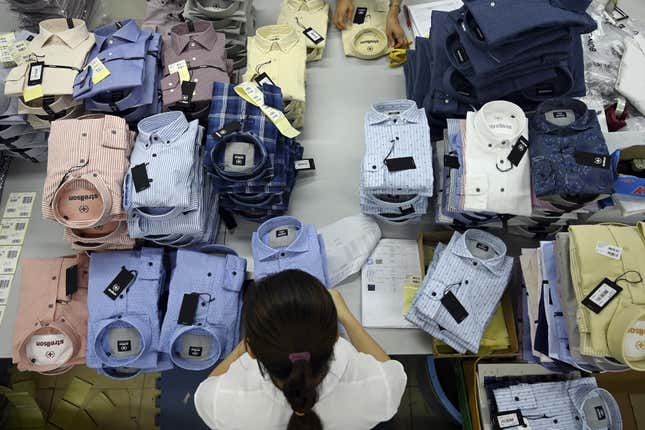California Passes Legislation Aimed at Drastically Increasing Garment Workers’ Wages
Governor Gavin Newsom signed the Garment Worker Protection Act into law on Monday
Politics

On Monday, Gov. Gavin Newsom signed the Garment Worker Protection Act into law, legislation that makes California the first state to pay garment workers hourly wages.
According to the Los Angeles Times, the industry norm is to pay workers per item of clothing they produce, which has resulted in fewer than a third of garment workers in the LA area earning minimum wage. Under that pay structure, known as the piece-rate system, workers might earn mere cents for sewing a seam or collar. Many are paid off the books, the LA Times reports, and make around $3 or $4 an hour, without any overtime pay or health insurance. And because they are incentivized to work quickly, both worksite accidents and chronic conditions among the workers are common.
-

-

-

-

-

-

-

-

-

-

-

-

-

-

-

-

-

-

-

-

-

-

-

-

-

-

-

-

-

-

-

-

-

-

-

-

-

-

-

-








































